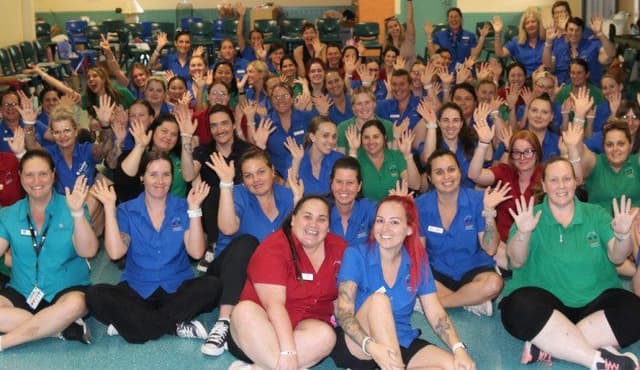General News
Long Day Care
Preschool
Provider
MindChamps patents education methodology in three major territories

Freya Lucas
Aug 22, 2024
Save
Early childhood education and care (ECEC) provider MindChamps has taken the unprecedented step of attaining Patent Status for its educational methodology in the United States, Australia and the United Kingdom.
Typically applied to the technology and pharmaceutical sectors, the patent system is rarely applied to education and care, and in order to attain patented status the provider had to convince examiners in each of the three jurisdictions that the education programme’s components were novel enough to warrant patents, and, more importantly that they formed key elements of a methodology that was truly a breakthrough approach.It was ultimately determined in each jurisdiction that the breakthrough in this methodology was its ability to enhance students’ interdisciplinary cognition – the brain’s capacity to develop understandings (and neural networks) that integrate skills in multiple disciplines simultaneously.
The patented methodology
This methodology draws on fundamental concepts shared between five literacies: Numerical, Language, Social, Emotional and Musical, and functions as a bridge and a catalyst to the development of other literacies.
In simpler terms, the methodology takes an interdisciplinary approach, developing shared fundamental concepts across numerous subjects which leads to greater understanding, instead of the more traditional method of teaching subjects such as numeracy, language and social skills in separate ‘silos’.
Research into the effectiveness of the method
Lending weight to the decision to patent the methodology was a three-year empirical research study during which the programme demonstrated significant improvements in scores on internationally recognised measures of language literacy (Test of Preschool Early Literacy - ToPEL) and numeracy (Test of Early Mathematics Assessment - TEMA), as well as results in musical literacy that were 1.5 standard deviations higher than similar students who did not participate in the programme.
These results have attracted the interest of major universities, including the University of South Australia (UniSA), which has already commenced the next phase of study on the programme.
UniSA researchers have conducted controlled field tests at MindChamps PreSchools using electroencephalography (EEG) protocols and anticipate that the research results will greatly enhance the development of learning experiences that engage children, as well as deepen the neuroscience community’s understanding of early childhood brain development.
“From our beginnings as a research centre in Sydney in 1998, and for over a quarter of a century, MindChamps has invested heavily in research, programme development and training in line with our Social Charter to challenge and lift education standards globally,” MindChamps Founder, Executive Chairman and Group CEO David Chiem said.
“Our vision has always been to integrate the best of global research and practice, and this milestone is a significant validation of our efforts,” he continued.
“Nurturing the young minds of tomorrow is both a privilege and a huge responsibility, and in an AI world that has changed so much, it is now more important than ever that how we nurture our children’s minds must be based on the latest empirical research.”
Aggressive defense of copyright
MindChamps PreSchool Limited has previously taken measures to safeguard the copyright of its name and methods, winning a two year legal battle in China, where a former employee of MindChamps had returned to China and made the provider aware of a business operating under the name MindChamps PreSchool in Xi’an, the capital city of the Shaanxi Province in central China.
The preschool, trading under the name 迈杰思 and MindChamps was found to have illegally replicated MindChamps’ trademark protected corporate identity including the logo, student uniforms and interior decoration designs.
The Chinese court found that the use of “迈杰思” and “MindChamps” by two defendants in their preschool and WeChat was likely to cause confusion and hence constituted trademark infringement and unfair competition.
Acting for MindChamps Preschool Limited, legal counsel said the ruling “had significantly exceeded most of the judgments issued by this court for trademark infringement and unfair competition cases. Moreover, the two defendants were ordered to issue a statement on their WeChat account to eliminate the harmful effects of consumer confusion.”
The defendants were ordered to pay RMB 120,000 (AUD 25,500) to MindChamps and cover all court fees, as well as instructed to publish in the WeChat public account “在 涉 案 幼 儿 园 微 信 公 众 号” a clarification on the confusion and unfair competition caused to MindChamps continuously for seven days.
“Winning this case reinforces the strength of our MindChamps brand, which has been built over 25 years with breakthrough research and curriculum development behind it,” Mr Chiem said.
In 2014 the provider won another case against a company registered as “MindChamps Montessori Incorporated” in the Philippines.
Commenting on both cases MindChamps Preschool Limited reiterated its zero tolerance position on any kind of brand infringement.
“Our brand has been built on over 25 years of breakthrough research and curriculum development to benefit young children and society as a whole. It’s not just about potential damage to our brand but also the negative impact such a copycat school might have on the children attending it,” the statement notes.
Don’t miss a thing
Related topics
Affordability & Accessibility
Compliance
Legislation
In The Field
Marketplace
Corporate activity
Professional development
Advocacy
Family Day Care
Innovative Research
Leadership
Long Day Care
NQF and Policy Changes
Outside School Hours Care
Politics
Preschool
Understanding Children
General News
Supply & Demand
Property
Report Summaries
Allied Fields
Changes
Reporting
Examples
Services
Personnel Appointments
Events News
Products
Jobs News
Jobs Tips and Resources
Other
















